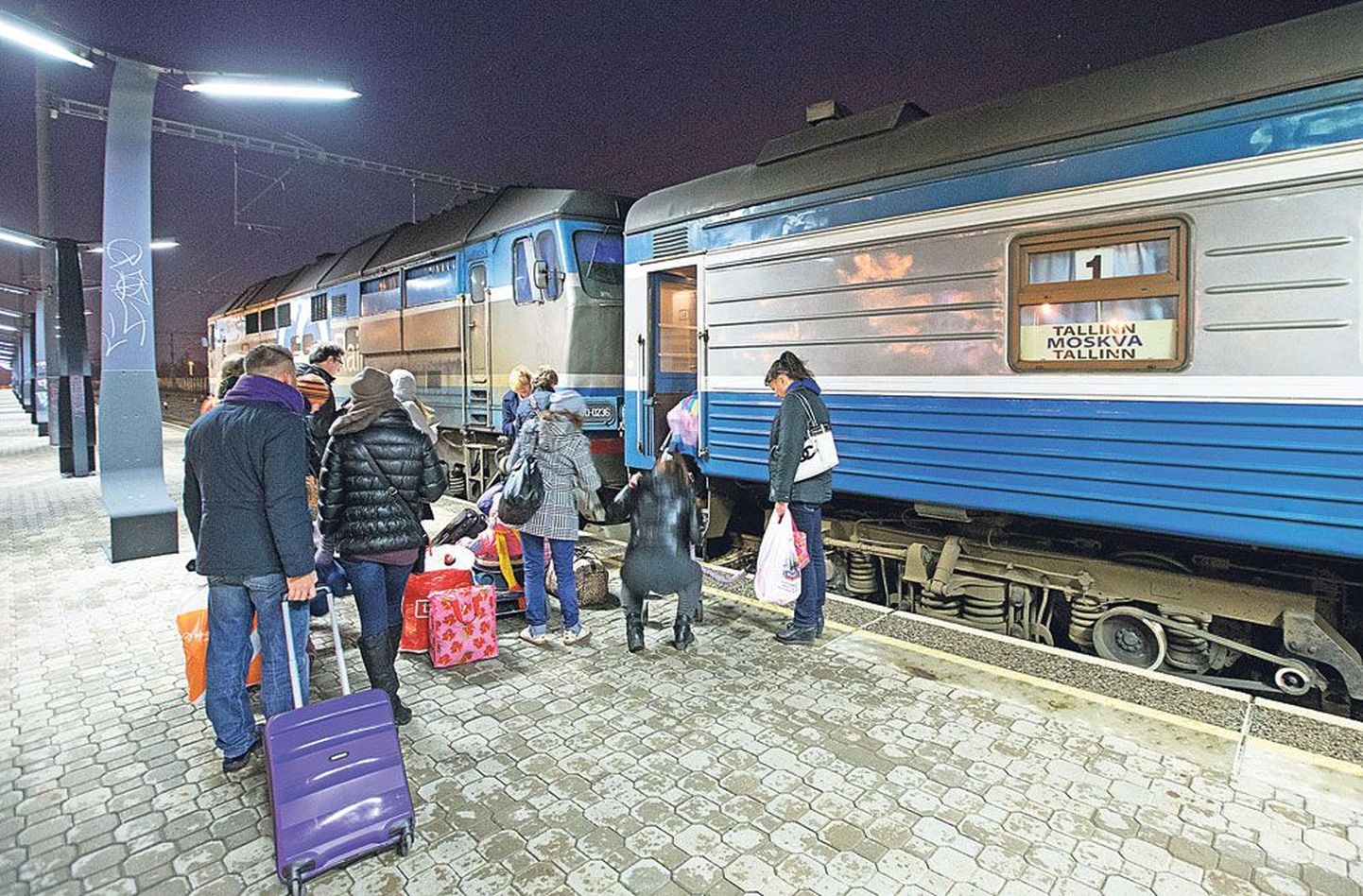
«By December 1st GoRail will have decided whether we continue selling tickets to Moscow and St Petersburg lines after January 13th or not,» said SEO Jüri Etverk. «Passengers need not worry as all tickets sold to them are valid.»

«By December 1st GoRail will have decided whether we continue selling tickets to Moscow and St Petersburg lines after January 13th or not,» said SEO Jüri Etverk. «Passengers need not worry as all tickets sold to them are valid.»
At the moment, Estonia’s sole railway link to outside world is the Moscow and St Petersburg passenger train line which since this spring has shed nearly 40 percent of travellers.
«We would like to keep up the business but the fall of the rouble, the war in Ukraine, and Estonia joining the anti-Russia sanctions is having a bad effect,» said Mr Etverk. «The Russians are being advised not to travel to states that joined the sanctions, and that does show in our ticket sales.»
To get out of the dead end, GoGrupp is in talks with a dozen partners with no clear solution found so far.
An option would be selling train lines operating agreements or even the entire company to the state, to then have some state enterprise continue the business. A measure of relief would be Russian Railways agreeing to redistribute ticket revenue to the favour of Estonians. Also, an option is asking Estonian state support.
Talking to minister
Perhaps, numbers of departures might be cut, so as to save labour costs and the maintenance of carriages.
Meanwhile, tourism players and political analysts are being consulted as to how long the crisis might continue. «Perhaps, the right decision would be going into the red for one or 1.5 years,» added Mr Etverk.
At the economy minister Urve Palo’s (SDE) yesterday, options were weighed about keeping railway links with Russia. Perhaps, they discussed, the state would take over GoRail’s contracts and acquire new and more comfortable trains, a ministry source confirmed to Postimees. The source added that an update of St Petersburg line would be more expedient as the travel time is shorter and no sleeping cars needed.
Now, Estonian Railways (Eesti Raudtee) CEO Ahti Asmann needs to find out the conditions and options GoGrupp has for continuing the train traffic. The man was curt when commenting the talks in the ministry.
«Well we talked about all things related to railway financing,» said Mr Asmann. «No definite task given me by the ministry.»
Tourism business deems railway connection to Russia vital and they’d be happy to see the state to step in.
«First and foremost, train travel is important for Tallinn, but from there tourists from Russia do move on to other regions in Estonia,» said Hotel and Restaurant Association chairman Verni Loodmaa. «While with Finland the ferryboat connection is fine, we have too few flight connections and the trains disappearing would be bad for tourism.»
The express trains whizzing between Finland and Russia are injecting hope in the business that Estonia might also come to have an eastward connection like that.
«The express trains from Helsinki towards St Petersburg and Moscow are filled with people – if with state aid we’d get the same kind of a result for Estonia, that would be heartily welcome,» said Travel and Tourism Association board member Daisy Järva.
According to several experts, input of Russian tourists arriving by train may amount to €60m yearly for Estonian tourism business.
Exact numbers unknown
Citing confidentiality, GoRail was not about to disclose the exact amount of travellers. Meanwhile, they forecast a fifth less for Moscow line by end of December, year-on-year. With the drop smaller in summer months, at other times it is close to minus 35 percent depending on the month.
Regarding the St Petersburg line, GoRail is predicting 15 percent drop in basic departures by year’s end. An additional line was added just this year.
GoRail pre-sells its tickets up to 45 days in advance; however, pursuant to contracts the railway infrastructure company needs to be notified of closure of a line 60 days before the event. International passenger transport draws no state subsidy and the costs must be covered by ticked sales.
GoRail is part of GoGroup majority owned by Marcel Vichmann via First Telecom Trading OÜ.
------------------------------------------------------------
Moscow line thus far steady
While the Tallinn–Moscow train line works without breaks, the St Petersburg one has been often closed down and reopened, on and off. Of the tourists visiting Estonia, people from St Petersburg are make for a large share but the trains need to compete with bus lines – the latter being much more flexible. At the moment, the St Petersburg trains go twice a day while the buses ride almost every hour. The last time the Tallinn–Petersburg train line was opened was at the end of 2012 and it has worked till today without interruptions. GoRail says the demand is greatest for 1st class luxury wagons with Internet connection, lots of leg room, tables, a bar corner, and other additional goodies. The opening of the line was preceded by a four year pause. The connection was on in 2007–2008. In 2008, GoRail closed the Tallinn–Petersburg train line down as the substantial rise in infrastructure charges made it impossible to compete with bus tickets. PM